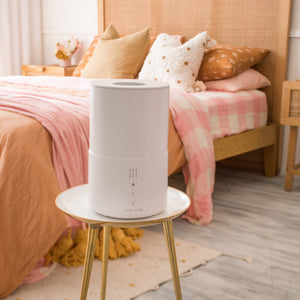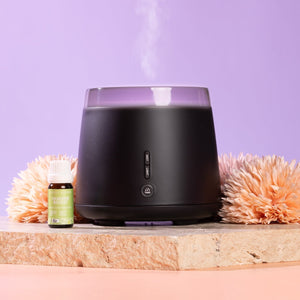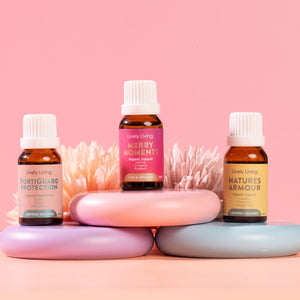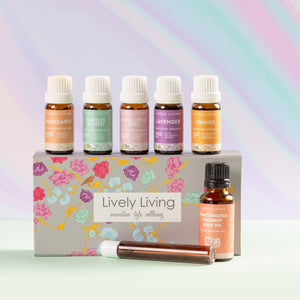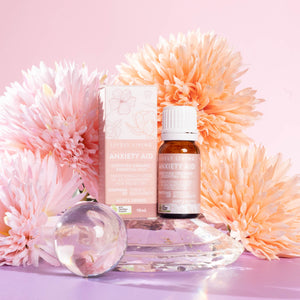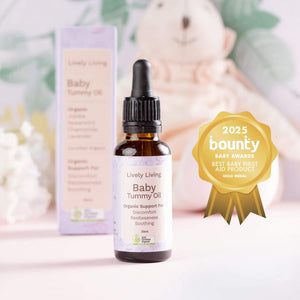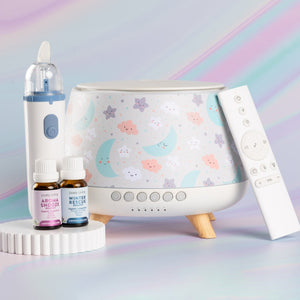Best Essential Oils for Dementia: A Wellness Guide
Living with dementia presents challenges for individuals and their families. As memory fades and cognitive function declines, finding ways to enhance well-being becomes crucial. Many are turning to essential oils for dementia as a complementary therapy to ease symptoms. Essential oils offer a non-invasive and potentially beneficial approach to improving quality of life for those affected by dementia diagnosis. This exploration delves into the potential benefits, usage guidelines, and research surrounding essential oils and their potential benefits for older adults.
Table Of Contents:
- Understanding the Power of Scent
- Best Essential Oils for Dementia Symptoms
- Practical Applications of Essential Oils for Dementia Care
- Important Considerations and Precautions
- Research and Evidence
- FAQs about Best Essential Oils for Dementia
- Conclusion
Understanding the Power of Scent
The sense of smell has a powerful connection to memory and emotion. Scent bypasses the thalamus and directly connects to the brain's limbic system, which includes the memory centers. This direct pathway makes aromatherapy particularly relevant for individuals with vascular dementia.
How Aromatherapy Can Help with Dementia
Aromatherapy, using essential oils extracted from fragrant plants, works by stimulating olfactory receptors. This stimulation impacts brain activity and emotional states. Studies have indicated that some scents might positively affect dementia symptoms, potentially enhancing daily living.
- Agitation and Anxiety: Soothing scents like lavender, chamomile, and sandalwood may calm feelings of agitation, anxiety, and restlessness.
- Memory Enhancement: Certain essential oils, including rosemary, lemon balm, and peppermint, may improve memory and cognitive function.
- Sleep Improvement: Calming essential oils from our sleep range, such as lavender, bergamot, and chamomile may promote relaxation and improve sleep. Try incorporating nightly aromatherapy for potentially positive effects.
- Mood Elevation: Citrus-based essential oils, like orange and lemon, can uplift mood and may combat apathy or depression.
Best Essential Oils for Dementia Symptoms
Research on essential oils for dementia is ongoing. Some oils have shown promise as alternative therapies. Always consult with a healthcare professional before starting any new therapy, including complementary therapies using essential oils.
Responses to essential oils are individual. What works for one person may not work for another. This is consistent across many alternative therapies as well.
| Essential Oil | Potential Benefits for Dementia | Usage |
|---|---|---|
| Lavender | Reduces agitation, promotes relaxation and sleep, may ease anxiety and depression | Diffusion, massage (diluted), topical application (diluted) |
| Rosemary | May improve memory and alertness | Diffusion, inhalation |
| Lemon Balm | May improve cognitive function and reduce agitation | Diffusion, massage (diluted) |
| Peppermint | May improve memory, alertness, and cognitive performance | Diffusion, inhalation |
| Bergamot | Uplifting, may improve mood and sleep quality, reduce agitation, promote a sense of contentment | Diffusion |
Practical Applications of Essential Oils for Dementia Care
Incorporating essential oils into dementia care can be done in several ways. Consider what is safest and most comfortable for your family member. Explore which methods and essential oils provide the best results. The olfactory sense is powerful in dementia care, so consider how it might benefit the individual.
- Aromatherapy Diffusion: Using a diffuser disperses the scent, creating a calm atmosphere. Various diffusers are available.
- Topical Application: Dilute essential oils with a carrier oil (jojoba, almond, or coconut oil). Gently massage into the skin. Consult a healthcare professional before starting topical applications of essential oils, especially if concerned about allergic reactions or existing medical conditions.
- Inhalation: Add essential oil drops to a tissue or cotton ball. Hold it near the nose for brief periods.
Important Considerations and Precautions
Essential oils have considerations and precautions. It's important to use them safely and understand potential side effects.
- Quality Matters: Use pure, therapeutic-grade essential oils from reputable sources. Poor-quality oils might be adulterated or synthetic.
- Safety First: Some individuals are sensitive or allergic to certain oils. Start with low concentrations and conduct a skin patch test. Consider aromatherapy safe practices to ensure quality care.
- Seek Professional Guidance: Consult a qualified aromatherapist or healthcare professional for guidance on oil selection and application. They can provide personalized recommendations.
- When using diffusers and oils for the elderly, consider a diffuser that is easy to use. The Aroma-Oil Waterless Diffuser by Lively Living has a auto shut off, is cordless and water free.
Research and Evidence
Studies on essential oils and dementia show mixed results. This might be due to varied individual responses to different fragrant plant oils. For instance, a 2018 study indicated improvements in olfactory and verbal functions in those who regularly used a blend of rose, orange, eucalyptus, lemon, peppermint, rosemary, and lavender essential oils, as opposed to the control group working on daily Sudoku puzzles.
In Australia, cognitive decline, including memory loss, affects a substantial portion of the population. Consider essential oils as one component of dementia care. Combining aromatherapy with conventional methods under professional guidance is best. This allows healthcare professionals to monitor for potential adverse effects while seeking evidence of any benefits from incorporating essential oils.
A controlled trial published in the International Journal of Geriatric Psychiatry in 2018, which incorporated olfactory enrichment as a therapy using the mentioned blend of essential oils, suggested these plant oils could have potential benefits for patients.
FAQs about Best Essential Oils for Dementia
What is the number one trigger for dementia?
Scientists have not identified a single trigger for most dementias, including Alzheimer's disease. Several factors, like age, genetics, and lifestyle, may increase risk. More research is needed to better understand this complex disease process. Dementia continues to be a significant health concern worldwide.
What is the best essential oil for memory?
Rosemary is often cited for potential benefits to memory and alertness. Peppermint may also offer similar benefits. More research is needed, but the positive effects of regular exposure to rosemary aroma on word list recall have been explored. Though further investigation and systematic reviews are needed to consolidate findings from various studies.
Ultimately, what works best varies by individual and requires some experimentation. Consult a healthcare provider before using essential oils as a treatment.
What scents are good for dementia patients?
Calming scents, including lavender, chamomile, and sandalwood, may ease agitation and anxiety. Everyday Health suggests rosemary, lemon balm, and peppermint for potential cognitive benefits. Individual reactions to these aromatherapy essential oils may vary considerably.
What is good for dementia patients?
A structured daily routine and intellectual stimulation can be beneficial. Mental engagement and light exercise can enhance cognitive and physical well-being. A supportive environment reduces stress. This supportive care should include support services and quality care in care facility environments as needed. Access to quality day care may also prove beneficial.
Conclusion
Essential oils show promise for dementia care. However, consulting a healthcare provider before incorporating them into a treatment plan is crucial. Research suggests essential oils could provide valuable support. Because responses vary, experimentation under professional guidance is essential. This ensures oils applied, and other complementary therapies attempted, are both safe and effective, as overseen by a physician or another member of their care team. Combining these alternative therapies with conventional treatments is part of comprehensive care for people facing dementia diagnosis. They can help individuals to find some improvement to various issues encountered when dealing with dementia symptoms, including memory related impairments and declining cognitive functioning. A study measured benefits in older adults through multiple cognitive tests, including memory, verbal fluency and word list recall tests.
```













